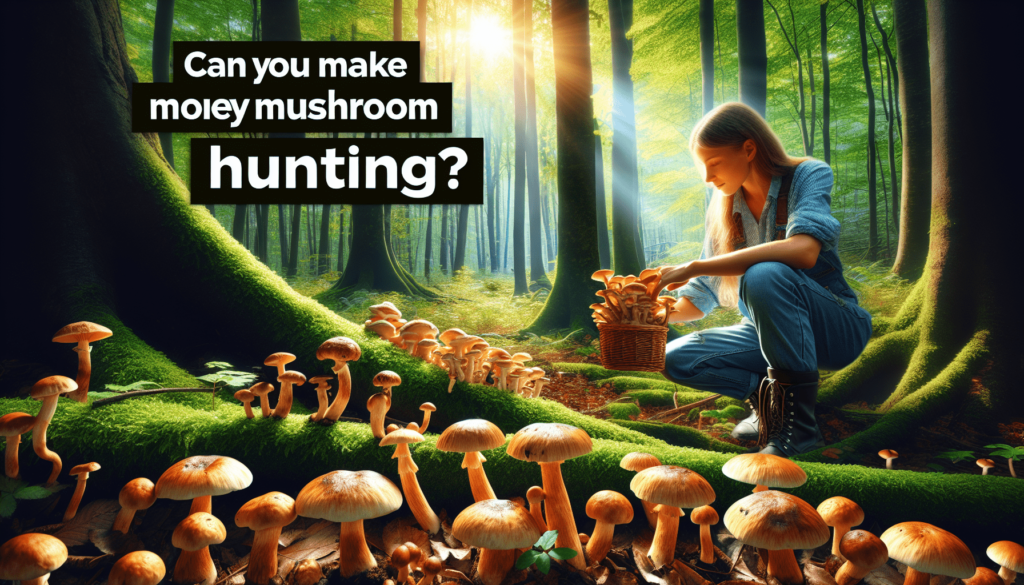“Can You Make Money mushroom hunting?” offers an engaging exploration into the fascinating world of foraging for fungi. If you’ve ever wondered whether your weekend hobby could turn profitable, you’re in for a treat. This article unveils the secrets of the trade—covering everything from identifying valuable mushrooms to the best markets for selling them. Dive in to discover practical tips and inspiring stories from seasoned hunters who have successfully turned their passion for the forest into a fruitful side hustle.
Can You Make Money Mushroom Hunting?
Have you ever strolled through a forest and wondered if those abundant, seemingly mysterious mushrooms could actually make you some money? Maybe you’ve heard stories of successful foragers striking gold – or rather, striking morels – and thought about giving it a try yourself. Well, you’re not alone! Mushroom hunting isn’t just a fascinating way to connect with nature; it can also be a rewarding venture if you know what you’re doing.
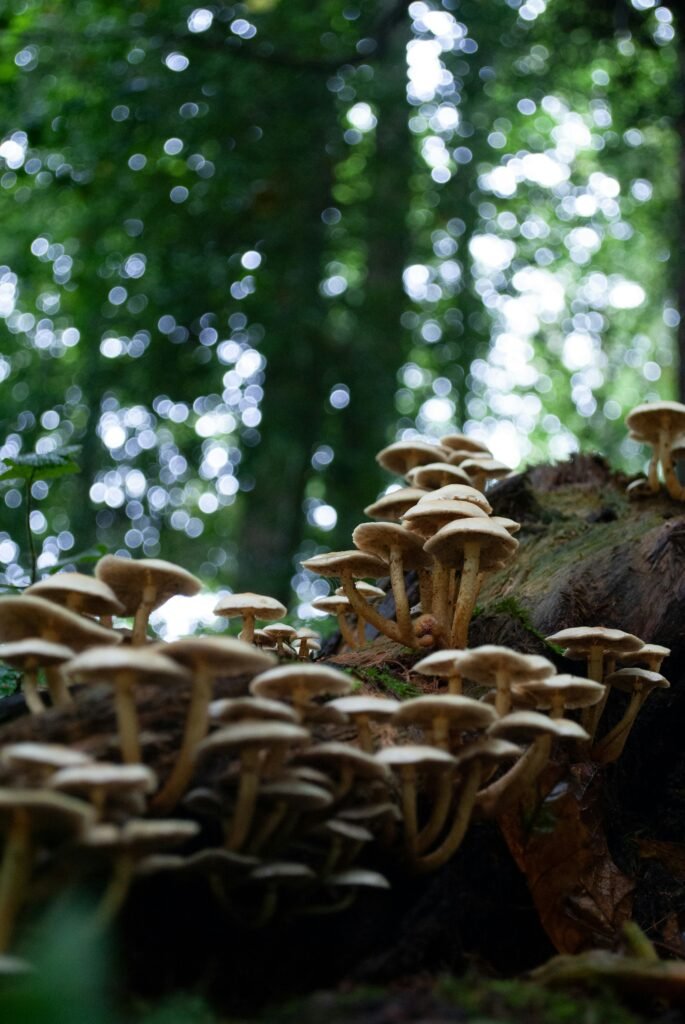
The Fascination with Mushroom Hunting
Let’s start with why people get into mushroom hunting in the first place. Beyond the potential cash, there’s an alluring combination of adventure, mystery, and the undeniable thrill of the hunt. The variety of mushrooms you can find – from common button mushrooms to valuable truffles – only adds to the excitement.
A Connection to Nature
Mushroom hunting offers a unique way to enjoy the great outdoors. It’s an activity that encourages you to slow down, look closely at your surroundings, and appreciate the natural world in a deeper way.
Health Benefits
Aside from the mental benefits, many wild mushrooms are incredibly nutritious. They’re often loaded with vitamins, minerals, and antioxidants. Consuming wild mushrooms can complement a healthy diet, making mushroom hunting a win-win situation!
The Business of Mushroom Hunting
But let’s get to the crux of the matter: can you make money from mushroom hunting? The short answer is yes, but it comes with some caveats. The profitability of mushroom hunting depends on various factors including the type of mushroom, your location, knowledge, and market demand.
Types of Mushrooms You Can Sell
Different mushrooms have different values. Some species are more sought after than others, and their prices can vary significantly. Here are some of the most profitable types you might encounter:
| Mushroom Type | Average Price Per Pound |
|---|---|
| Morel | $20 – $50 |
| Chanterelle | $20 – $30 |
| Porcini | $20 – $40 |
| Truffle | $2000 – $5000 |
| Lion’s Mane | $8 – $15 |
| Oyster | $5 – $15 |
Each type comes with its own set of challenges and rewards. Morels and chanterelles, for instance, are seasonal and require some expertise to find, whereas truffles might even require special tools or trained dogs!
Where to Sell Your Finds
So, you’ve found some mushrooms, and now you’re ready to turn them into cash. But where do you sell them? Here are a few options:
Farmers’ Markets
Farmers’ markets can be an excellent place to sell your mushrooms. Local chefs and food enthusiasts who appreciate the flavors and health benefits of wild mushrooms often frequent these venues.
Online Markets
Online platforms like Etsy or specialized mushroom-selling websites can open up a broader market for your finds. You can potentially reach buyers nationwide or even internationally.
Restaurants
High-end restaurants often seek rare and exotic mushrooms to elevate their dishes. Establishing a relationship with local chefs can lead to ongoing sales and a more stable revenue stream.
Getting Started: The Basics
Feeling excited yet? Before you grab a basket and head for the woods, there are some essential steps to consider. Mushroom hunting may seem easy, but it requires knowledge, tools, and sometimes even permits to do it legally and safely.
Knowledge is Key
Knowing where and when to find mushrooms is crucial. You don’t want to wander aimlessly through the woods, so let’s break down the basics of what you need to learn.
Identification
Mushroom identification is the most critical skill you need to develop. Many wild mushrooms are not only inedible but also toxic. Investing in a good field guide or taking a course can be invaluable. Here are some key features to look at when identifying mushrooms:
- Cap shape and color
- Gill arrangement
- Spore print color
- Stem characteristics
- Habitat
Seasonality
Most edible mushrooms are seasonal. Morels appear in the spring, while chanterelles and porcini are typically found in the summer and fall. Knowing the right season for your target mushrooms can greatly improve your chances of success.
Tools of the Trade
Having the right equipment can make your mushroom hunting experience more effective and enjoyable. Here are some must-have items:
- Basket or mesh bag: Allow spores to disperse as you walk, helping propagate more mushrooms.
- Knife: Useful for cutting mushrooms at the base, minimizing damage to the mycelium.
- Field guide: Handy for quick identification in the field.
- GPS or map: To navigate forest areas and mark promising spots for future visits.
- Permits: In many areas, you’ll need a permit to forage legally.
Legal Considerations
Before you start hunting, make sure you’re aware of the legal regulations in your area. In some places, mushroom foraging is restricted to protect native species and habitats. Check with local or national park services for guidelines and necessary permits.
Skill Acquisition: Learning the Ropes
Starting as a novice mushroom hunter can be daunting, but don’t worry! Like any other skill, mushroom hunting gets easier with practice and learning. The more you know, the more successful and profitable you’ll be.
Take a Course
Several organizations and communities offer workshops and courses in mushroom identification and foraging. These can greatly accelerate your learning process and help you make informed decisions while in the wild.
Join a Mushroom Hunting Group
Connecting with experienced foragers can be a game-changer. Mushroom hunting groups often organize forays, share tips, and help identify mysterious mushrooms you may find. It’s a great way to learn and network at the same time.
Practice in Your Backyard
Before you venture far into the wild, practice closer to home. Your own backyard or nearby parks can be excellent places to test your new skills.
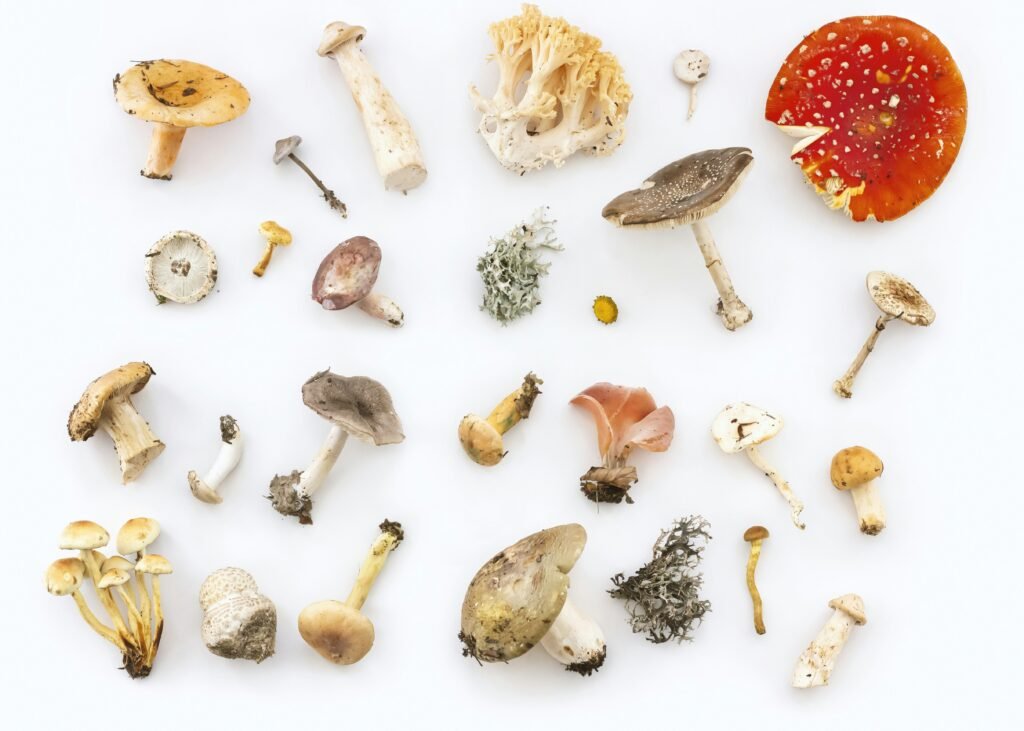
Advanced Techniques: Increasing Your Yield
Once you’ve mastered the basics, there are ways to take your mushroom hunting to the next level. Here are some advanced techniques to improve your yield and efficiency.
Using Technology
While traditional knowledge is invaluable, technology can also be a mushroom hunter’s best friend. Smartphone apps can help with identification and geographic information systems (GIS) can assist in finding hotspots.
Truffle Dogs
If you’re interested in hunting truffles, consider training a dog to help. Certain breeds are particularly good at sniffing out these buried treasures.
Sustainable Foraging
Always remember to forage sustainably. By cutting mushrooms rather than pulling them out, you help preserve the mycelium for future growth. Be mindful of local ecosystems and never take more than you need.
Market Trends and Demands
Understanding the market trends and demands can significantly impact your profitability. Being strategic about what and when you sell can make a big difference.
Seasonal Peaks
Certain mushrooms are more valuable during particular times of the year. Knowing these peaks can help you maximize your earnings. For instance, morels fetch the highest prices in the spring.
Cultivated vs. Wild
Cultivated mushrooms like oyster and shiitake are widely available. However, wild mushrooms often command higher prices due to their rarity and unique flavors. Keeping an eye on what is currently popular can help guide your foraging efforts.
Specialty Markets
Exploring niche markets can also be lucrative. Vegan and health food markets often have a high demand for organic and wild-foraged mushrooms. Partnering with local businesses in these niches can lead to consistent sales.
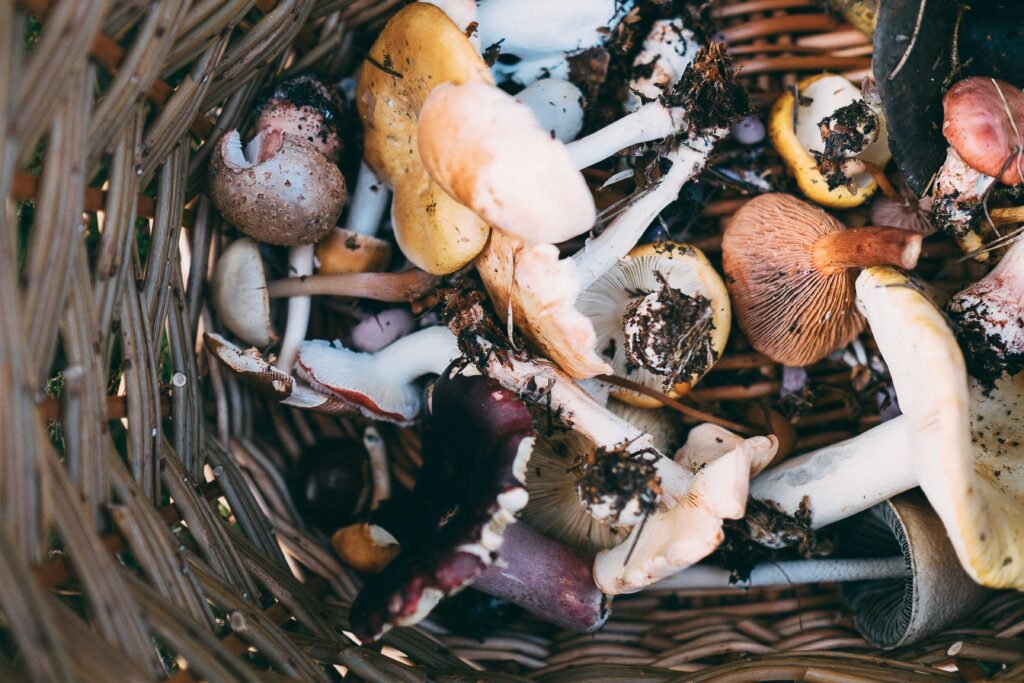
Challenges and Risks
Like any venture, mushroom hunting comes with its own set of challenges and risks. Being aware of these can help you prepare and avoid common pitfalls.
Poisonous Mushrooms
The biggest risk in mushroom hunting is accidentally picking a toxic species. Always double-check your finds and when in doubt, throw it out.
Weather Conditions
Weather can affect both your ability to find mushrooms and your safety. Mushrooms require specific conditions to fruit, and heavy rains or dry spells can make foraging unproductive or even dangerous.
Legal Issues
Always be aware of local foraging laws to avoid fines or other legal trouble. Some areas have strict regulations to protect local ecosystems.
Misidentification
Even seasoned hunters can misidentify mushrooms. Regularly consulting your field guide and possibly getting a second opinion from an expert can mitigate this risk.
Case Studies: Success Stories
Hearing from those who have successfully made money from mushroom hunting can be incredibly inspiring and educational. Here are a couple of examples:
The Morel Master
John is a seasoned forager who specializes in morels. Every spring, he spends weeks traveling to various hotspots across his state, meticulously documenting locations and conditions. Through years of experience, John now makes an average of $10,000 each season.
The Truffle Hunter
Sarah, a chef turned mushroom hunter, invested in training her dog to sniff out truffles. This initial investment has paid off; Sarah makes upward of $30,000 annually by supplying high-end restaurants with these sought-after fungi.
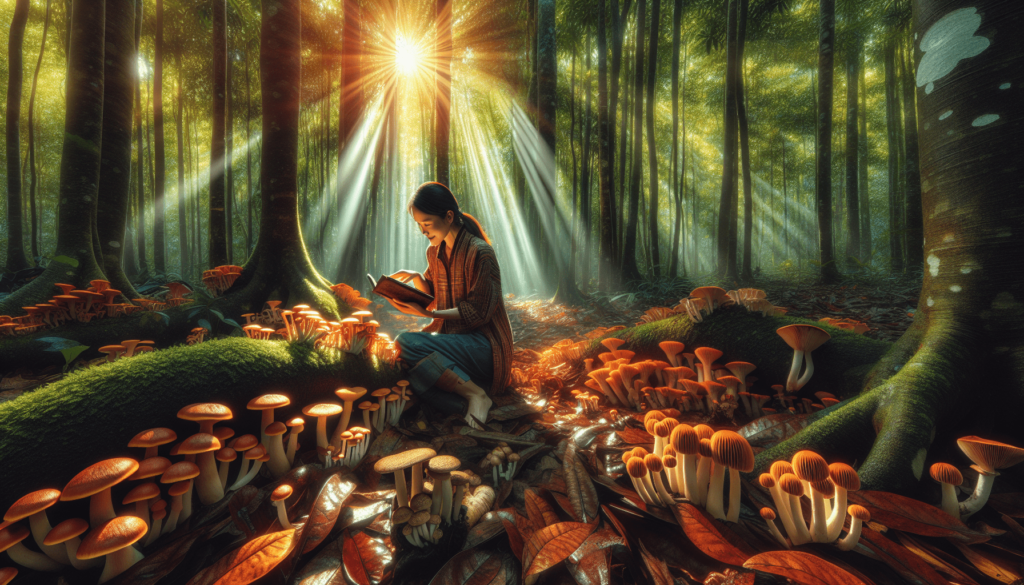
Making Mushroom Hunting a Full-Time Job
So, can you make mushroom hunting a full-time job? It depends. If you live in an area rich with valuable mushrooms and invest the time and resources into learning and perfecting your craft, it’s certainly possible. However, for many, it remains a fun and profitable side gig.
Diversification
Consider diversifying your income streams. Selling fresh mushrooms can be complemented by selling dried mushrooms, making mushroom-based products, or even running workshops and tours.
Building a Brand
Create a brand around your mushroom hunting venture. A strong brand can help you build a loyal customer base and stand out in a crowded market. Use social media to showcase your finds and engage with your audience.
Final Thoughts
Mushroom hunting can be a joyful and lucrative endeavor if approached with the right knowledge and attitude. Always prioritize safety, stay informed, and be respectful of nature. Whether it becomes a full-time job or a profitable hobby, mushroom hunting offers rewards that go beyond monetary gains. So, get out there, happy hunting, and may your basket be always full!
